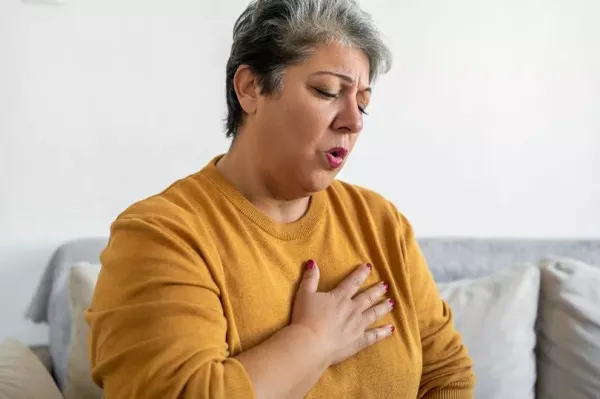
NHS and British Heart Foundation health experts have revealed that a common everyday pill could be a lifesaver if you suspect you're having a heart attack. When a heart attack occurs, the blood flow to the heart is blocked, often due to a blood clot breaking off from a fatty plaque in a coronary artery and lodging in the blood vessel.
Doctors typically treat heart attack patients by preventing these clots from growing and further blocking the artery. They may also use blood thinners to help more blood get past the clot and supply oxygen to the heart.
Ruth Goss, Senior Cardiac Nurse at the British Heart Foundation, explained to the charity's that this is where aspirin comes into play. She described the painkiller as an 'antiplatelet medicine', which works on small blood cells called platelets that are crucial for blood clotting and wound healing because they make blood 'stickier'. Aspirin reduces this stickiness, lowering the risk of clots and thinning the blood.
Ruth said: "This is why the chewing 300mg of aspirin if you think you’re having a heart attack. You can do this while waiting for an ambulance to arrive.
"However, only do it if you have aspirin nearby, or if someone can get it for you. Do not go looking for it if you think you’re having a heart attack because it’s important to rest and stay calm until help arrives. And do not take aspirin if you’re allergic to it.
"If you have had a heart attack, or are at risk of having another one, your doctor may suggest you take a low dose of aspirin every day, for the long term. says this can reduce your risk of having another heart attack."
READ MORE:
READ MORE:
Ruth recommended that anyone with questions about being on aspirin should speak to their GP or pharmacist.
Symptoms of a heart attackThe symptoms of a heart attack can include:
The health body said the chest pain would often be severe, but some people only experience minor pain, similar to indigestion. While the most common symptom is chest pain, symptoms can vary from person to person, it said.

It added: "Some people may have other symptoms such as shortness of breath, feeling or being sick and back or jaw pain without any chest pain. Call 999 immediately if you think someone might be having a heart attack. The faster you act, the better their chances."
Treating heart attacksThe says that, while waiting for an ambulance, it may help to chew and then swallow a tablet of aspirin (ideally 300mg), as long as the person having a heart attack is not allergic to aspirin. As Ruth said, aspirin helps to thin the blood and improves blood flow to the heart.

In hospital, treatment for a heart attack depends on the type of heart attack, and how serious it is.
The two main treatments are: